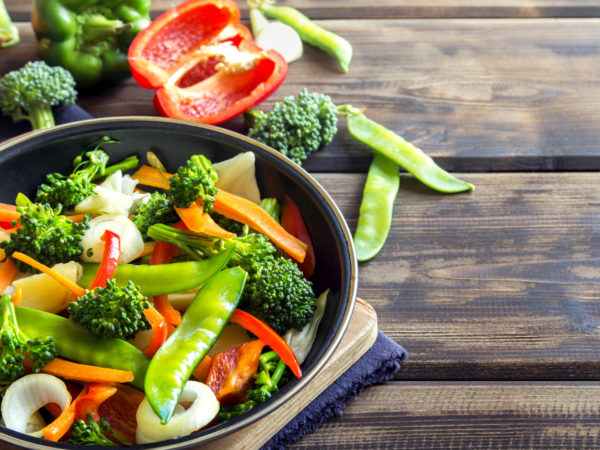Cancer, The Lifestyle Connection

Cancer is defined as a disease that causes cells in the body to change and multiply out of control, disrupting the normal function of a particular organ or organs. Cancer begins when the DNA molecules – the materials in our cells that dictate our genetic makeup and control the way our cells divide – are altered. These cells then begin to grow and multiply, forming tumors. Some tumors are malignant, meaning they destroy their surrounding tissue and have the potential to spread to other sites in the body. Benign tumors do not grow and spread like cancer, and they usually don’t become a serious health threat.
Diet plays a multitude of roles in the development of cancer. The first is exposure to ingested substances that initiate cancer (carcinogens). The second is exposure to substances in the diet that can either enhance or inhibit the growth of the cancerous cells. These include compounds that influence our immune system as well as those that have a direct effect on cancer cells.
If you are challenged by cancer, consider adopting the following suggestions:
- Use mind/body techniques such as guided imagery and meditation, and energy medicine modalities like Therapeutic Touch and Reiki to enhance your treatments of choice.
- Stay active. Regular exercise is an essential part of staying healthy. Engage in gentle physical activity as often as you can.
- Get support. Join a support program for people with cancer. The inspiration and hope you’ll find there is priceless.
- Have faith. Don’t underestimate the role of your spiritual life in the healing process.
Nutrition & Lifestyle
Population studies – those that carefully examine the risk of health conditions in different groups of people – have clearly identified environment and lifestyle as major factors influencing the development of cancer. Diet ranks second only to smoking as a controllable aspect of lifestyle linked to cancer. The American Institute for Cancer Prevention has published these compelling statements:
- Eating right, plus staying physically active and maintaining a healthy weight, can cut cancer risk by 30 to 40 percent.
- Recommended dietary choices coupled with not smoking and avoiding second-hand smoke have the potential to reduce cancer risk by 60 to 70 percent.
- As many as 375,000 cases of cancer, at current cancer rates, could be prevented each year in this nation through healthy dietary choices.
- Eating at least five servings of fruits and vegetables each day could by itself reduce cancer rates more than 20 percent.
Treatments for cancer, either conventional, alternative or a combination of both, can be enhanced by some simple lifestyle, diet and nutritional supplement strategies.
- Always discuss any changes in diet with your health care practitioner.
- Have one to two servings of whole soy foods each day.The simplest soy food to include may be soy milk as a beverage or ingredient in a smoothie. Also try edamame (whole green soybeans), canned soybeans, tofu, roasted soy nuts and soynut butter.
- Eat generous amounts of vegetables and moderate amounts of fruit. Choose organic whenever possible to minimize exposure to pesticide residues that may put an extra detoxification load on the liver. Consider juicing to easily ingest several servings without feeling too full.
- Drink green tea several times a day. Remember that decaffeinated versions are available and quite delicious.
- Limit alcohol consumption. In virtually all studies that have looked at alcohol consumption and risk of cancer, regular consumption is linked with increased cancer risk, especially breast cancer.
- Avoid harmful radiation, UV light, and carcinogenic chemicals.
Recommended Supplements:
- Get plenty of antioxidants through foods or supplements.
- Concentrate on omega-3 fatty acids either through foods or supplements. The foods that are rich in this healthy type of fat are walnuts and flax seed, and cold-water fish like salmon and sardines.
- Asian mushrooms – These contain strongly cancer-protective substances.
- CoQ10 – A natural antioxidant which has been shown to increase survival in some forms of cancer.
- Folic acid – Can help reduce the risk of breast cancer.
- A vitamin B-complex – Folic acid (with B12) can help prevent cancer of the colon.
- A balanced calcium-magnesium formula – Can be an effective weapon against colon cancer.
- Lycopene – A powerful antioxidant that is particularly good at protecting against prostate cancer.
- Selenium – Fosters healthy cell growth and division, and discourages tumor formation.
- Vitamin D – Reduces risk of prostate, colorectal and other forms of cancer.














